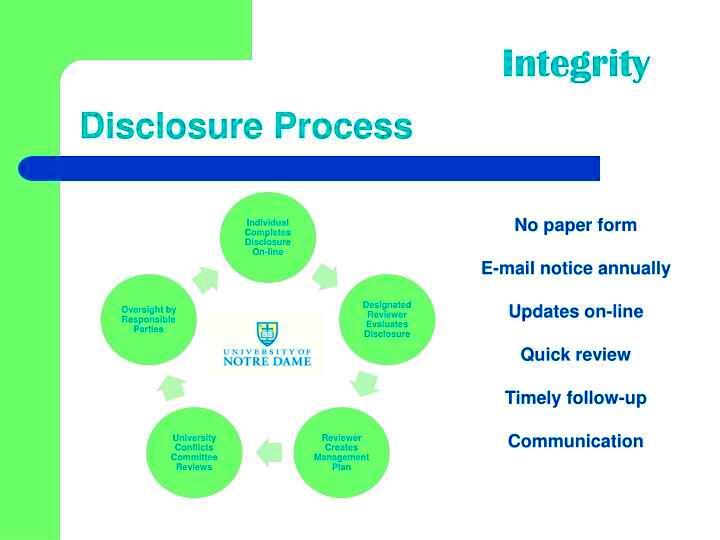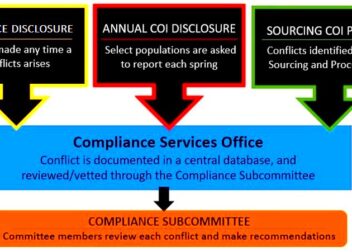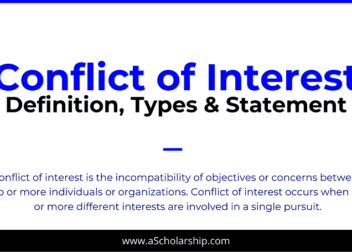Conflict of Interest Disclosure Reforms in Massachusetts
Conflict of interest laws in Massachusetts are designed to ensure that public officials act in the best interest of the public, without any personal or financial gain influencing their decisions. These laws require individuals in government positions to disclose any potential conflicts that might affect their impartiality. Recent reforms have made it essential for all public officials and employees to understand and comply with these rules to maintain transparency and integrity in government operations.
Key Changes in Conflict of Interest Disclosure Requirements
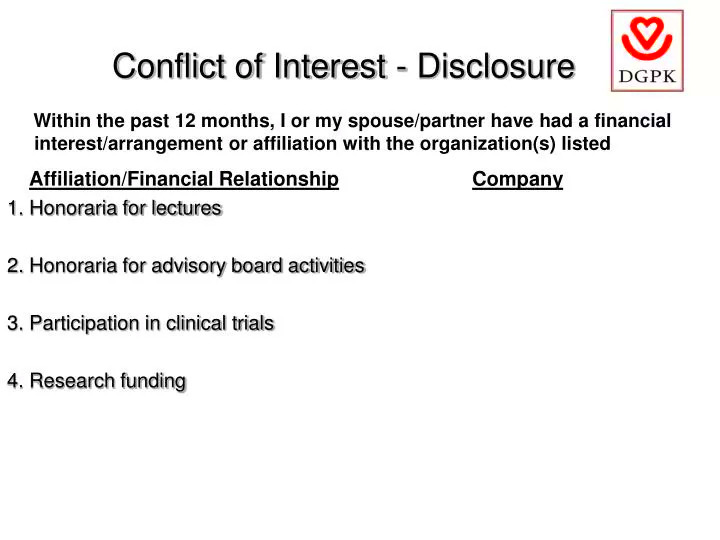
The recent reforms in Massachusetts have introduced several key changes to the conflict of interest disclosure requirements. These changes are aimed at strengthening the existing laws and ensuring greater accountability among public officials. Some of the main changes include:
- Enhanced Disclosure Obligations: Public officials must now provide more detailed information regarding their financial interests and any relationships that could pose a conflict.
- Annual Reporting: All public employees are required to submit an annual report disclosing any potential conflicts of interest, even if there are no changes from the previous year.
- Expanded Coverage: The reforms now include a broader range of individuals, such as contractors and consultants working with government agencies, who must also disclose any conflicts of interest.
- Stricter Penalties: The penalties for failing to disclose or providing false information have been increased, including fines and potential removal from office.
These changes aim to create a more transparent government and ensure that public officials are held to the highest ethical standards.
How New Reforms Impact Public Officials
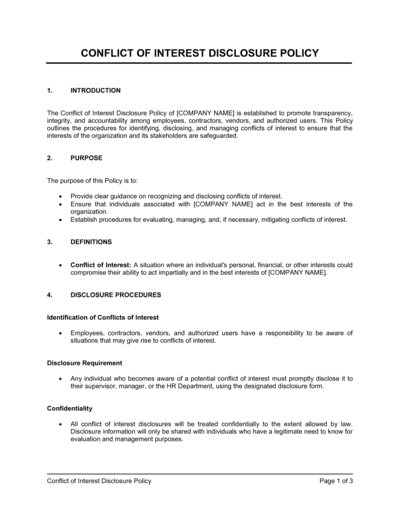
The new conflict of interest reforms significantly impact how public officials in Massachusetts operate. They are now required to be more vigilant and proactive in identifying and disclosing any potential conflicts. Some of the specific impacts include:
- Increased Scrutiny: Public officials are subject to closer scrutiny regarding their financial and personal relationships. This includes a review of business dealings, investments, and affiliations with organizations that may have interests in government decisions.
- Mandatory Training: All public officials must undergo regular training on conflict of interest laws and the new disclosure requirements. This helps ensure that they are fully aware of their obligations and the consequences of non-compliance.
- Reporting Obligations: Public officials must now report any conflict of interest promptly, as soon as it arises, instead of waiting for the annual disclosure period. This immediate reporting helps prevent potential conflicts from influencing decision-making processes.
- Impact on Decision-Making: Officials with disclosed conflicts may be required to recuse themselves from specific decisions or votes. This ensures that all actions taken by public officials are free from personal bias or gain.
Overall, these reforms aim to foster a more transparent and accountable government by ensuring that public officials operate with integrity and in the public’s best interest.
To preserve public service integrity, Massachusetts state employees are expected to follow conflict-of-interest laws carefully. To keep personal or monetary interests out of their professional obligations, employees must comply with specific rules. This is why all state workers strive for impartiality and work toward benefiting the general populace.Compliance requirements for state employees that are vital comprise:Thus, by adhering to these standards, public servants make sure that their behaviours are characterised by openness, impartiality and general focus on the interests of all citizens.Commonwealth workers as well as public officers that do not expose their conflicting interests may face serious outcomes. The state levies heavy penalties in order to maintain public service integrity and accountability.Penalties may include the following:Deterrent is what penalties are meant to be, underlining the necessity of transparency and ethical conduct in public service. The importance of disclosure requirements is to retain public trust and confidence in public servants and officials.For public servants, proper disclosure of conflicts of interest is essential for transparency and purity. This process guarantees that any possible conflict are recognized and dealt with suitably, therefore, personal interests do not interfere with professional choices. The following steps should be taken by state employees as well as officials in Massachusetts to effectively disclose conflicts of interest:Fulfilling these steps aids make sure any conflicts of interest are handled well so as to preserve the public’s faith in government activities.
Compliance Requirements for State Employees
State employees in Massachusetts are expected to adhere strictly to conflict of interest laws to maintain the integrity of public service. Compliance requirements are designed to prevent any personal or financial interests from influencing their professional duties. These obligations ensure that all state employees act impartially and in the best interest of the public.
Key compliance requirements for state employees include:
- Annual Disclosure Forms: All state employees must complete and submit an annual disclosure form outlining any financial interests, affiliations, or relationships that could pose a conflict of interest.
- Notification of Changes: Employees must report any changes to their financial interests or relationships that may create a conflict of interest as soon as they arise, even outside the annual reporting period.
- Gifts and Gratuities: State employees are prohibited from accepting gifts or gratuities from individuals or entities that could benefit from their official actions. This rule is in place to prevent any undue influence on decision-making processes.
- Recusal Requirements: Employees must recuse themselves from any decisions, discussions, or actions that could be influenced by a conflict of interest. This includes abstaining from voting or participating in matters where they have a personal stake.
- Mandatory Training: All state employees are required to undergo regular training sessions to stay updated on conflict of interest laws and compliance procedures.
By following these requirements, state employees help ensure that their actions remain transparent, fair, and in the public’s best interest.
Penalties for Failing to Disclose Conflicts of Interest
Failure to disclose conflicts of interest can lead to serious consequences for state employees and public officials in Massachusetts. The state enforces strict penalties to uphold the integrity of public service and ensure accountability.
Some of the penalties include:
- Fines: Individuals who fail to disclose conflicts of interest or provide false information may be subject to significant fines, depending on the severity of the violation.
- Suspension or Termination: State employees found in violation of disclosure requirements may face suspension or termination from their positions. This is particularly likely in cases where the conflict has influenced decision-making.
- Criminal Charges: In severe cases, failing to disclose conflicts of interest can lead to criminal charges, especially if there is evidence of corruption or fraud. Convictions can result in additional fines or even imprisonment.
- Reputation Damage: Beyond legal and financial penalties, failing to comply with conflict of interest laws can cause significant damage to an individual’s reputation, affecting future career opportunities and public trust.
Penalties are intended to serve as a deterrent, reinforcing the importance of transparency and ethical conduct in public service. Adhering to disclosure requirements helps maintain the trust and confidence of the public in state employees and officials.
Steps to Properly Disclose Conflicts of Interest
Properly disclosing conflicts of interest is crucial for maintaining transparency and integrity in public service. The process ensures that all potential conflicts are identified and managed appropriately, preventing any personal interests from influencing professional decisions. State employees and officials in Massachusetts should follow these steps to disclose conflicts of interest effectively:
- Identify Potential Conflicts: Review personal financial interests, relationships, and affiliations to identify any potential conflicts that could affect job duties or decision-making. This includes ownership in businesses, family connections, and outside employment.
- Complete the Disclosure Form: Fill out the required conflict of interest disclosure form, providing detailed information about any identified conflicts. Ensure that all information is accurate and up-to-date.
- Submit the Form: Submit the completed disclosure form to the appropriate ethics or compliance office within the specified timeframe, typically on an annual basis or as soon as a conflict arises.
- Update Information as Needed: If there are any changes to financial interests or relationships that could pose a conflict, update the disclosure form immediately. This ensures ongoing compliance with state laws.
- Consult with Ethics Officials: If unsure about whether a situation constitutes a conflict of interest, consult with the agency’s ethics officer or legal counsel for guidance on proper disclosure and management.
- Recuse Yourself When Necessary: In cases where a conflict exists, recuse yourself from any related decision-making processes, discussions, or votes to avoid any appearance of impropriety.
Following these steps helps ensure that conflicts of interest are managed effectively, maintaining the trust and confidence of the public in government operations.
Massachusetts organizations and employers are then required to align their operations with conflict of interest laws in order to embrace ethical standards and save themselves from legal ramifications. This is especially vital for entities involved with government agencies or engaging public officials in any capacity. Following these guidelines will ensure compliance with the law by the organizations and employers, thus making it easier for their employees to abide by requirements on conflict of interests.Important directions consist of:Thus, it is possible for such organizations and employers to promote ethical conduct, prevent conflicts of interest affecting their operations as well as help ensure compliance with Massachusetts laws through adherence to the guidelines here below.The recent amendments of conflict of interest laws in Massachusetts have raised a lot of questions. Here are some of the frequently-asked questions that seek to clarify the changes and their impact:In case you have more inquiries regarding the conflict of interest reforms, it is advisable to consult your organization’s compliance office or legal department.The conflict of interest disclosure reforms in Massachusetts are very significant for the purpose of promoting transparency and accountability within public service. All these changes make certain that public officials as well as employees act in a way that serves the interest of the public without any personal or financial pressure. Thus, it is necessary to understand and adhere to these reforms in order to maintain public trust and uphold the integrity of government services.The proactive measures that organizations and state workers should take to comply with such requirements are clear policy making, frequent training programs, and promotion of frank talk. Through this, they would be able to efficiently handle conflicts of interest and prevent them from interfering with their job.In the end, the aim of these reforms is to instill a culture of integrity and ethics in public service so that all decisions are taken transparently and equitably. If Massachusetts adheres to the protocols and procedures stipulated in these reforms, it can perpetuate an accountable and reliable government.
Guidelines for Organizations and Employers
Organizations and employers in Massachusetts must ensure that their operations align with conflict of interest laws to maintain ethical standards and avoid legal complications. This is particularly important for entities working with government agencies or employing individuals in public positions. Following these guidelines helps organizations and employers comply with the law and support their employees in adhering to conflict of interest requirements.
Key guidelines include:
- Implement a Conflict of Interest Policy: Organizations should develop and implement a clear conflict of interest policy that outlines what constitutes a conflict, how to identify potential conflicts, and the steps employees must take to disclose them.
- Provide Regular Training: Employers should offer regular training sessions to educate employees about conflict of interest laws and the organization’s specific policies. This training should include real-world scenarios to help employees recognize potential conflicts.
- Establish Reporting Procedures: Organizations should have a clear, confidential process for employees to report potential conflicts of interest. This can include an anonymous hotline or a designated compliance officer to handle disclosures.
- Review and Monitor Disclosures: Employers should regularly review conflict of interest disclosures and monitor compliance. This involves ensuring that disclosed conflicts are managed appropriately and that employees adhere to recusal requirements when necessary.
- Encourage Open Communication: Organizations should foster a culture of transparency and openness, encouraging employees to discuss potential conflicts with supervisors or ethics officers without fear of retaliation.
By following these guidelines, organizations and employers can help prevent conflicts of interest from affecting their operations, promote ethical behavior, and support compliance with Massachusetts law.
Frequently Asked Questions About Massachusetts Conflict of Interest Reforms
The recent reforms to conflict of interest laws in Massachusetts have raised many questions. Here are some of the most frequently asked questions to help clarify the changes and their impact:
| Question | Answer |
|---|---|
| Who is required to disclose conflicts of interest? | All public employees, officials, and certain contractors and consultants working with government agencies are required to disclose any potential conflicts of interest. |
| When should conflicts of interest be disclosed? | Conflicts should be disclosed annually through a formal report and as soon as a conflict arises during the year. |
| What happens if I fail to disclose a conflict of interest? | Failing to disclose a conflict can result in penalties, including fines, suspension, termination, and even criminal charges in severe cases. |
| How do I know if something is a conflict of interest? | If you are unsure, consult with your organization’s ethics officer or legal counsel. It is always better to disclose and seek guidance. |
| Can I accept a gift from someone affected by my official duties? | No, accepting gifts or gratuities from individuals or entities that could benefit from your official actions is prohibited. |
| What should I do if I realize I have a conflict of interest? | Immediately disclose the conflict to your supervisor or ethics officer and recuse yourself from any related decisions or actions. |
If you have more questions about the conflict of interest reforms, it’s advisable to consult your organization’s compliance office or legal department.
Conclusion on Conflict of Interest Disclosure Reforms
The conflict of interest disclosure reforms in Massachusetts are a crucial step towards enhancing transparency and accountability in public service. These changes ensure that public officials and employees act in the best interest of the public, free from personal or financial influences. Understanding and complying with these reforms is essential for maintaining public trust and upholding the integrity of government operations.
Organizations and state employees must take proactive steps to adhere to these requirements, including implementing clear policies, providing regular training, and maintaining open communication. By doing so, they can effectively manage conflicts of interest and prevent them from compromising their work.
Ultimately, the goal of these reforms is to foster a culture of integrity and ethical behavior in public service, ensuring that all decisions are made with transparency and fairness. By following the guidelines and steps outlined in these reforms, Massachusetts can continue to build a more accountable and trustworthy government.
